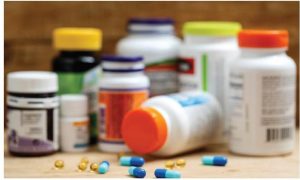Don’t Add Addiction to Injury
Resource Type
Family Resources
Resource Topic
Share this post


The Deadly Cycle of Medicine Abuse and Heroin Use
United Way of Broward County’s Commission on Behavioral Health & Drug Prevention
Opioids like heroin and prescription pain pills are fueling an epidemic of addiction and death, as well as other serious consequences in Broward County and across the nation.
These numbers are shocking. In 2017, there were 984 opioid-related deaths in Broward County.Forty-five percent of all primary drug addiction treatment admissions (excluding alcohol) were for heroin or a prescription opioid. Around 57,000 individuals aged 12 and above living in Broward County reported non medical use of pain relievers during the last year.Over 10,000 middle and high school students reported that they have taken a prescription pain medication without a doctor’s prescription, and 2,523 high school students reported having used heroin.
Addiction often begins with being prescribed narcotic or opioid pain medications for an injury. Opioids work by stimulating opioid receptors in the brain that reduce pain. Anyone can become addicted to a pain medication in just seven days of taking a narcotic. Opioid addiction or opioid use disorder is a serious medical condition. It is a chronic, relapsing brain disease with symptoms that include compulsive seeking and use of a drug, despite harmful consequences. It is considered a brain disease because drugs change the structure and functioning of the brain. Research suggests that over-the-counter pain medications may actually work better for treating acute pain.
Kids who learn about the dangers of drug use early and often are much less likely to develop addiction than those who do not receive these critical messages at home.
No One Wants to Become Addicted When They Grow Up
Many youth and adults falsely believe if a drug is a medicine it is safe regardless of how it is used.In fact,80 percent of people who use heroin started with legal prescription opioids.
Data from youth surveys show that teens misuse medications not simply to get high or to seek fun. Many are abusing prescription drugs to help manage their life, to escape, or to deal with pressures and stress. Some abuse painkillers on the weekend to get high, but others are abusing stimulants to stay awake or study longer. Others may experiment with medicines intended for anxiety disorders or they may seek out anti-depressants. Nevertheless, 95% of parents believe their child has never taken a prescription drug for a reason other than its intended use.
Are You and/or Your Children at Risk?
Parents need to know that teens who have been prescribed opioid medications are at an increased risk of opioid misuse. If a child has a prescription for opioid medications, check the bottle regularly to ensure that the prescription is being used at the prescribed rate. Pay attention if the child requests an early refill after “losing” the bottle or “dropping” the pills in the sink. Teens who hang around with others who are known to use drugs might also be at an increased risk, as might teens from families where drug abuse or misuse is present.
Don’t Be an Accidental Dealer
A great way to reduce the epidemic is to talk to your doctor and ask about the risk for addiction; other alternatives; the lowest, most effective dose; length of the use; and a plan to taper off use. By talking to a doctor, fewer prescriptions will be written, fewer people will become addicted, fewer overdoses will occur, and fewer pills will be available for potential misuse.
Patients receiving treatment for prescription drug abuse often report they got them for free or bought them from family or friends.The best way to avoid being part of the problem is to keep prescription drugs in a safe and secure locked cabinet, clean them out and dispose any unwanted, unused or expired medications by Googling “Drug drop off near me” or by visiting DEATakeBack.com.
Parents Are the #1 Influence in the Lives of Their Children
Kids who learn about the dangers of drug use early and often are much less likely to develop addiction than those who do not receive these critical messages at home.But these conversations are not always easy.Teenagers can be difficult to parent.It is important to find help and support, take parenting classes,keep talking with them, listen to them without getting upset or judgmental, and even ask their pediatricians for wellness screenings. Learn to recognize the signs and symptoms of opioid addiction, which can be physical, behavioral, and/or psychological. Healthcare providers should diagnose addiction. Help is available.
For resources to help address your child’s prescription drug abuse, please visit drugfree.org, or call 1-855-378- 4373, or text 55753. To learn more about local resources; or to learn more about Naloxone which is the antidote that reverses an opioid overdose, please call 2-1-1, or visit United Way of Broward County’s Commission on Behavioral Health and Drug Prevention at drugfreebroward.org.


